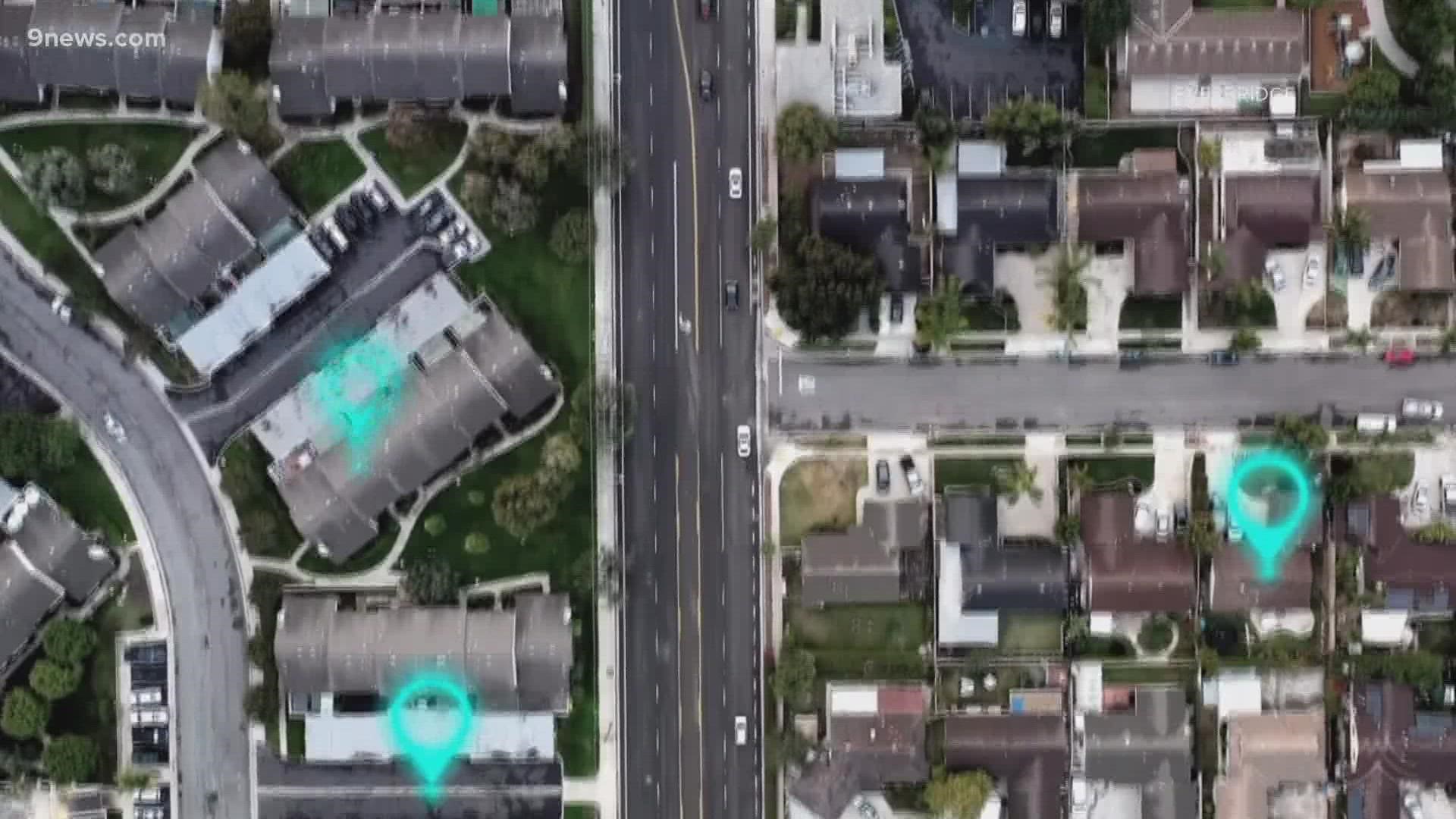DENVER — Have you signed up for your city or county's opt-in emergency alerts yet?
Since the Marshall Fire three months ago, successfully notifying people during an emergency has never been more important.
Denver just started a new opt-in notification program -- one that will send you a message if you need to shelter in place or, perhaps, stay indoors and drink a lot of water on a hot summer day.
Denver has something other cities and counties have not purchased. It's a cell phone database that automatically registers some, but not all, cell phone numbers. Of the 1.2 million contacts in Denver's database, 451,000 are residential cell phones. That accounts for 37% of the city's current contacts on file.
"It gives us, at least, a better chance of reaching the folks in an affective neighborhood or area than just simply relying on that opt-in portal," said Denver 911 Director Andrew Dameron.
Denver 911 uses the Everbridge system for reverse notifications, and purchased the company's "Residential Connection" cell phone database.
"We are utilizing a database of phone numbers, but based on addresses," said Dameron. "If you have an address within an affective area, where we're sending out a resident alert, you will receive it whether or not you are at that address."
That is why you will want to opt-in regardless.
The cell phones automatically entered into the database are linked to your residential address, just like a landline. So, if an alert were sent to an area near your address and you were miles away at work, you would still receive an alert on your phone. However, if something happened near your work miles away, you would not receive that alert on your phone because your cell phone is tied to your address.
Wireless Emergency Alerts (WEA) are the type of alerts that ping cell phones based on their location.
"They have restrictions and requirements on when we can use that. It's for major incidents: Acts of terrorism, significant weather, certainly a major wildfire through a residential area that required a mass evacuation, that would qualify for WEA." Said Dameron. "If we just have a temperature alert, we're expecting temperatures of 115 degrees in Denver and we're not used to that, and we want to notify folks, 'Hey, maybe drink some water, stay indoors, that sort of thing,' that doesn't count as a Wireless Emergency Alert situation."
To be sure you are covered at your home address and your work address, and to make sure your cell phone is in the database to begin with, you will want to opt-in.
How would your cell phone number be included in the database to begin with?
It takes more than just signing up for a cell phone provider.
"You have to have verified [it]. It has to have a gas bill, utility bill, financial component, something that you are actually using this address and this phone number for those types of purposes," said Everbridge Product Manager Francis Willett. "It does not contain every person in the population. Many people have private numbers; law enforcement, legal, there are a lot of protected numbers out there that we don't have access to."
Based on regulation from the Federal Communications Commission (FCC), the cell phone numbers can only be used for emergency situations.
"I can't stress enough that we are following the laws and privacy from a standpoint that this only used when somebody's life is in danger by that jurisdiction," said Willett.
And it must also include the option to opt-out.
"In order to maintain compliance with FCC regulations, is folks need the ability to opt out," said Dameron. "We don't have assurance that it's 100% accurate and complete, so therefore we need that opt-in portal to fill in the gaps."
Denver 911 is about to make a push to get people to opt-in to the new program that started in January.
"We have 4,821 opted-in from just a handful before, .04% of our contacts," said Denver 911 Operations Manager Jodi Slate. "We need more."
"Part of the reason it's so low is that we have not yet provided a concerted public information campaign. We're going to make a concerted push to really educate all the people of Denver on the various facets of emergency notifications and try and increase that number," said Dameron.
SUGGESTED VIDEOS: Full Episodes of Next with Kyle Clark

